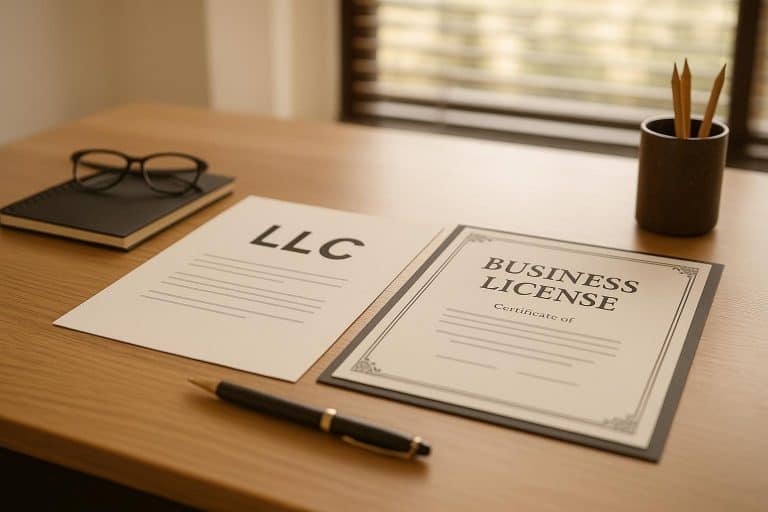Are you looking for the best way to incorporate your tech startup? Getting your business registered right will put your business in the best position to pay tax, grow, implement changes and manage your business.
What Does it Mean to Incorporate?
Incorporation is the process of registering your company. You incorporate by giving your state information about your business.
The information you have to provide varies from state to state, but usually, it includes the business name, type, and address. Also your information as the owner and anyone else who is involved in the business as a shareholder/ owner.
When you incorporate your business it becomes a legal entity. So, separate from you or the other shareholders.
It’s an important process. Separating your business from you will give you the opportunity to have other people join it, invest in it and buy it. It will also give you protection from the business’ liabilities.
What’s the Best Way to Incorporate a Tech Startup
Incorporating a tech startup brings about the same considerations as incorporating any other business. You want to work out how your business will operate, what’s the best way for you to pay tax, and how do you see your business growing and progressing over time.
There are different business structures to choose from when incorporating your business.
Limited Liability Company
This is the structure most businesses go for, it’s referred to as an LLC. LLCs are so popular because they have flexibility. Between the other company structures available to you, an LLC offers you the most convenient way to pay tax and still have liability protection.
An LLC is easy to set up, it doesn’t cost a lot to maintain, and any changes can be implemented without fuss.
What it doesn’t offer is the possibility of bringing outside investors in, in the form of buying shares. However, it’s possible to convert your LLC to a corporation at a later point if you’d like to receive this type of investment.
Corporations
Corporations are much more complicated to start, run, and maintain.
There are different types of corporations, the type of corporation defines how it’s taxed. You can read more about it here.
Generally speaking though, most corporation profits are subject to double taxation. They’re taxed at the profit of the corporation level and then the shareholder income. This can be problematic for startups, especially in the slower stage for your business.
How to Incorporate a Tech Startup
If you’re ready to incorporate there are a few things to consider.
First of all, your business name. Make sure it’s available. Most states have restrictions so you can’t use names that would suggest your company is a bank or a government institution.
Then, you need to pick the state you’ll incorporate in. Your business can be registered in any state as long as it isn’t tied to any specific state. It’s legally tied to a state if it has offices, warehouses, employees, etc. in that state.
You want to do some research on the right state for incorporation. They vary. Some are more expensive to incorporate in, than others. Also, some states give you full privacy at incorporation while others need you to give them all your details. Some need annual reports while others don’t. Read more about the differences between states for incorporation.
When you decide on the type of business and state, you can file with your state. There are a few ways you can do this. You can go through the mail, telephone (with some states), or online.
The easiest way is to file online. It’s fast, easy, and secure.
You can register your business online in minutes. We just ask that you fill in a form with the information, pay the fee, and in a few days, your business will be formed.
You’ll also have access to a dashboard for your business, where you can see your documents and even access mail if you sign up for a virtual mailbox.
After Incorporation
After incorporation, you should look at your documents like the operating agreement. Make sure that everything is set out in that document, especially if you own the business with other people.
After getting your operating agreement in order, you should register for an Employer Identification Number (EIN). The EIN is the tax identification number for your business. It helps the IRS keep track of how your business is doing and that it pays all the tax it’s due to pay. Registering for an EIN is pretty easy, here’s a guide that explains how.
The next step could be registering for a virtual mailbox or a registered agent.
A registered agent is required in most states. They act on the behalf of your business, receiving official correspondence from the court, for example. For that reason, the registered agent has to be available during business hours, within the state of registration. You can find out more about what registered agents do here.
Summary
To summarise, your tech startup incorporation process won’t differ much from the process you’d go through to incorporate a different type of business.
The most important thing is choosing whether you want to incorporate an LLC or a corporation and in which state. From then on you just have to take care of formalities and maintain your business in official records.








